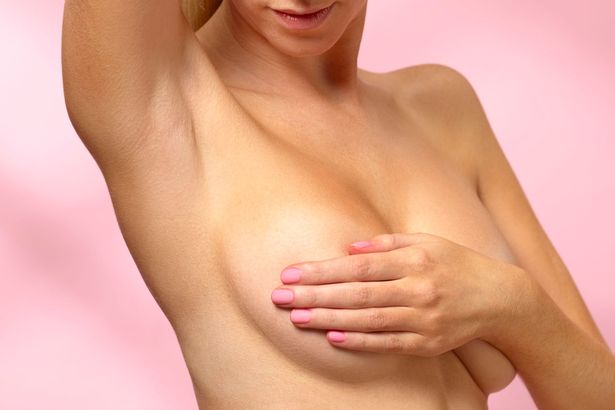-
Tips for becoming a good boxer - November 6, 2020
-
7 expert tips for making your hens night a memorable one - November 6, 2020
-
5 reasons to host your Christmas party on a cruise boat - November 6, 2020
-
What to do when you’re charged with a crime - November 6, 2020
-
Should you get one or multiple dogs? Here’s all you need to know - November 3, 2020
-
A Guide: How to Build Your Very Own Magic Mirror - February 14, 2019
-
Our Top Inspirational Baseball Stars - November 24, 2018
-
Five Tech Tools That Will Help You Turn Your Blog into a Business - November 24, 2018
-
How to Indulge on Vacation without Expanding Your Waist - November 9, 2018
-
5 Strategies for Businesses to Appeal to Today’s Increasingly Mobile-Crazed Customers - November 9, 2018
Common Chemicals in shampoos, body lotions and sunscreens May Increase Breast
CHEMICALS contained within cosmetics could be more harmful than previously thought, according to a United States study into the link between parabens and breast cancer.
Advertisement
The researchers revealed that there are two types of receptors linked to the breast cancer cells such as estrogen receptors and human epidermal growth factor receptors 2(HER2).
Research has shown that a chemical preservative used in personal care products such as sunscreens, shampoos and cosmetics may cause cancer at low levels. In particular, one area of increasing concern is how exposure to multiple chemicals during critical periods of development including puberty and pregnancy increases a person’s susceptibility to breast cancer later in life.
The research team draws attention over the safety of parabens, even in small doses.
Due to the combined effects of parabens and heregulin on cancer cells, the researchers stressed that manufacturing companies should be careful regarding the use of parabens in their products.
Leitman, Vulpe and their colleagues at the Silent Spring Institute published their findings online October 27 in the journal Environmental Health Perspectives.
“The bottom line of our study is that it vindicates that you can not say that parabens are totally safe in humans based on studies that tested (parabens) alone”, he said. To test the power of parabens, researchers decided not to use as much heregulin to activate HER2 on breast cancer cells, and instead exposed the HER2-activated cells to parabens. The study also raises questions about current safety testing methods that may not predict the true potency of parabens and their effects on human health.
“Although parabens are known to mimic the growth effects of estrogens on breast cancer cells, a few consider their effect too weak to cause harm”, said the study’s lead author Dale Leitman, a gynecologist and molecular biologist at UC Berkeley, in a press release.
“Scientists and regulators are using potency estimates from these kind of tests and are assuming they are relevant to what goes on in real life”.
Within a selected culture of breast cancer cells, the researchers activated HER 2 receptors. The same study but with human subjects could provide a different set of results since the added chemicals can also be affected by other compounds in the body.
It’s also not a secret that they can act the same as estrogen, but previous studies have proved that they could hardly harm breast cells, Leitman told Live Science.
Advertisement
“At this point, it gives us a warning that these compounds might not be good and to find out more about how these compounds look in the whole body”, Wang said.





























